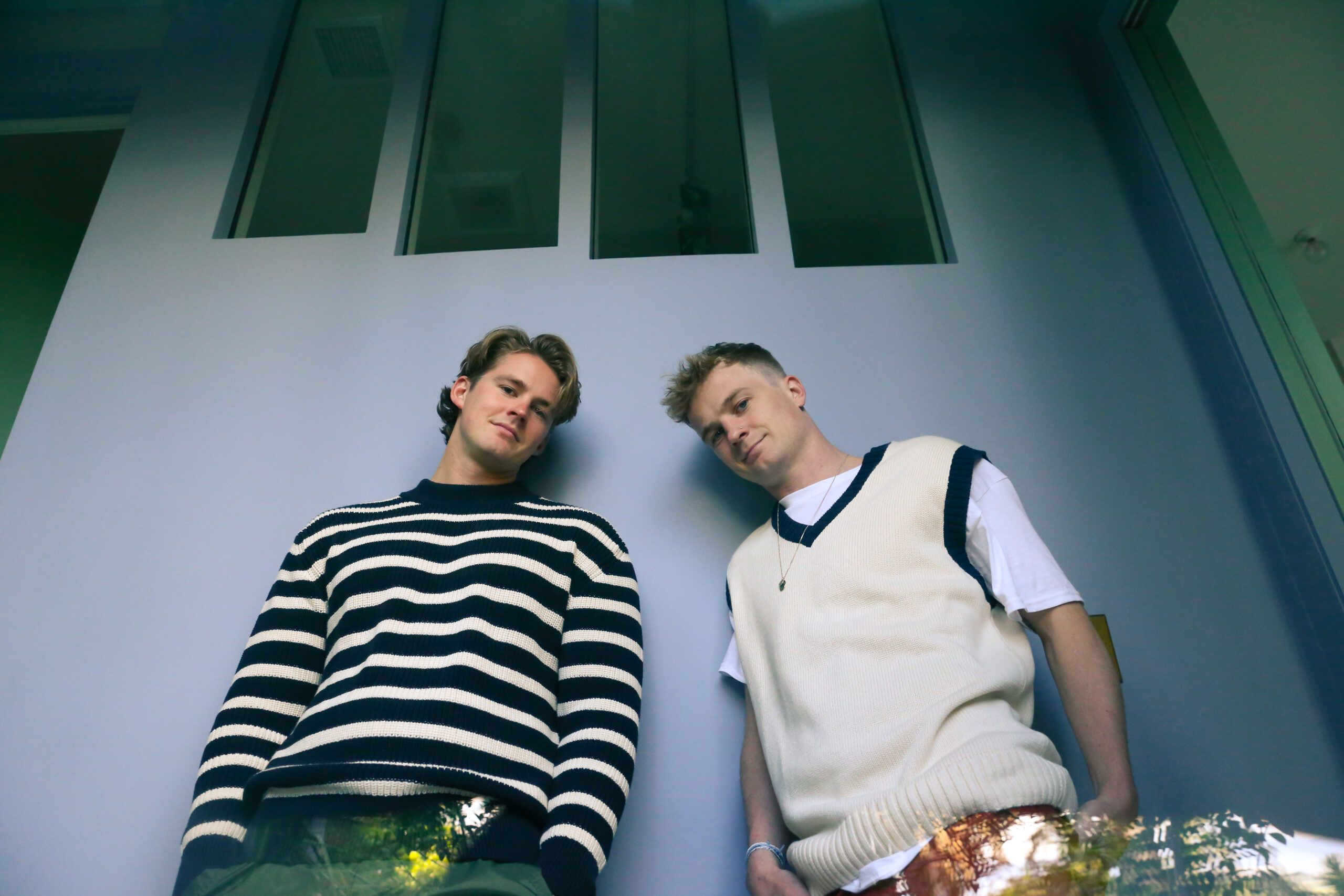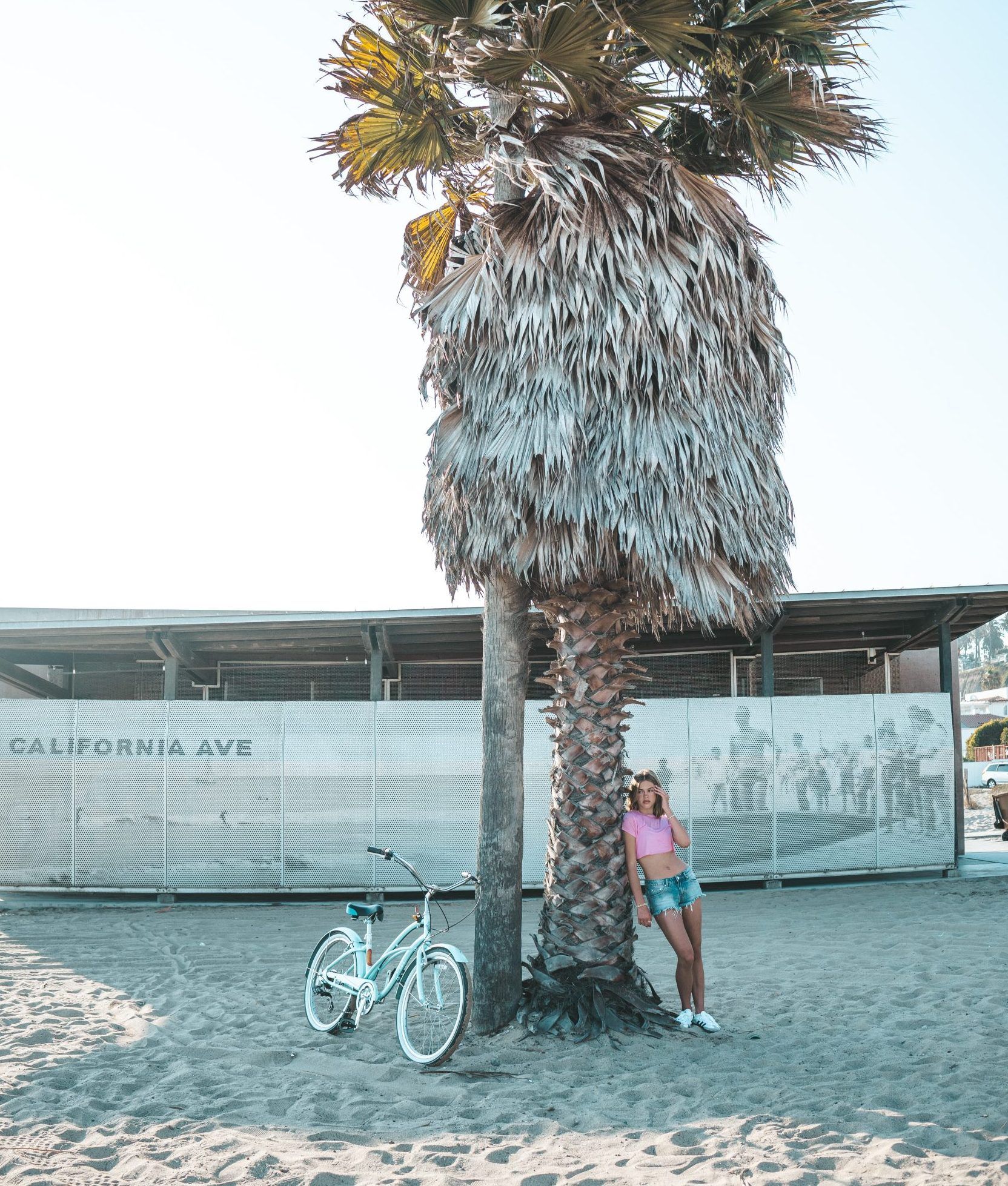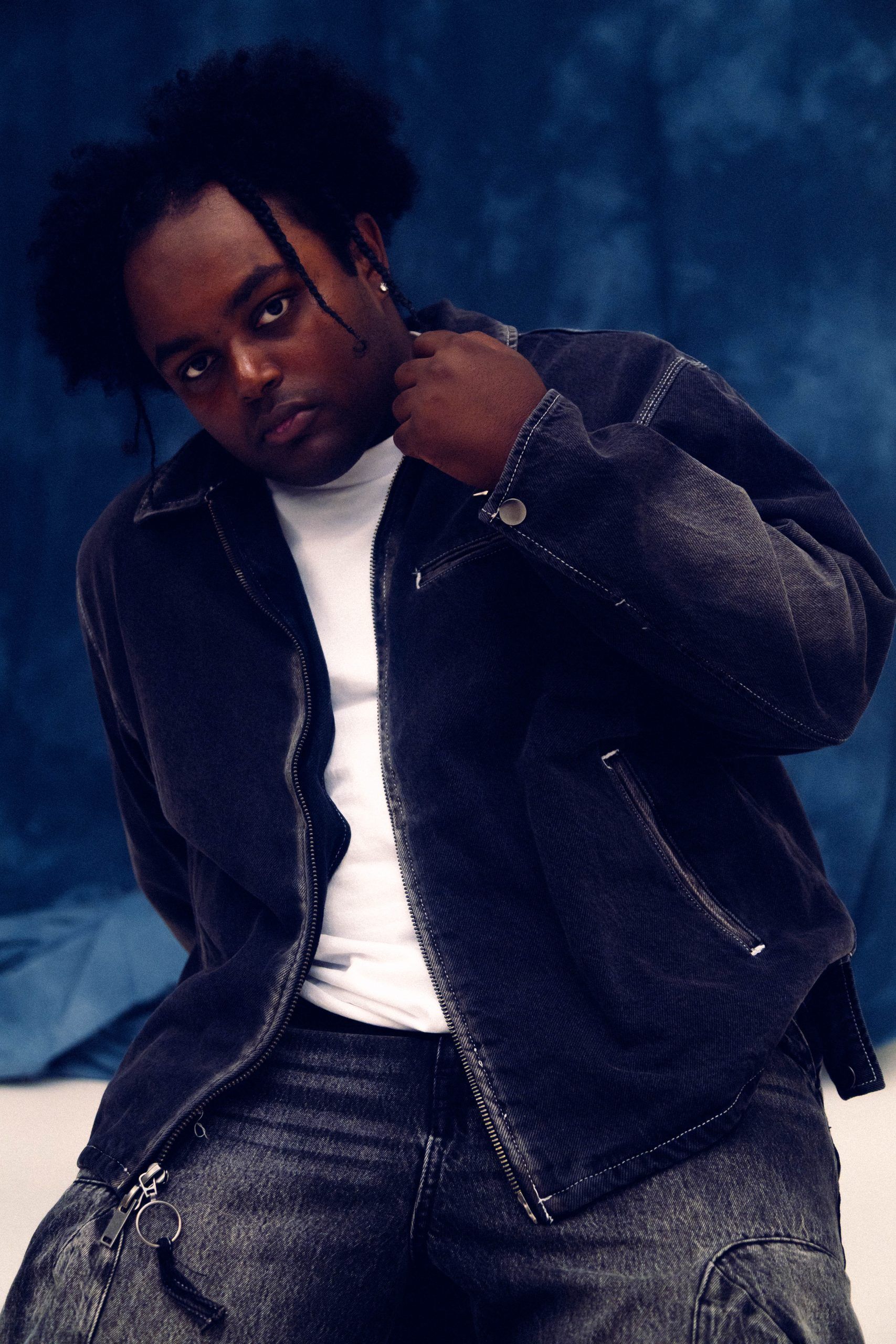Would you be surprised if I told you that Surfaces formed back in 2017? With only five years under their belts, the duo from Texas has managed to launch themselves into the limelight of stardom.
But for two family-oriented-musicians with their core values close to their hearts, that limelight isn’t what matters—staying grounded is what matters more. And it’s due in large part to their Texas roots. “Southern culture embodies being nice to others, be kind, be open, be warm, be loving,” said Colin from the band Surfaces during his interview with Marc from 1883 Magazine. “I grew up fifteen minutes around both sides of my family, so I’ve been taking all that love and that community in. I don’t want to speak on Forrest’s behalf, but that’s why we live in Texas; we don’t live in LA. Nothing against LA but Texas is home.”
And as the band embarks on their journey to complete their fifth studio album, this mantra rings true, keeping them connected to the foundation that helped teach them how to stay level-headed amidst a whirlwind of fame, success, and as Forrest would call it, “the highest highs.”
For 1883 Magazine, Marc was able to speak with the humble duo Surfaces over Zoom about the importance of being true to yourself, the healing power of music, and the inspiration behind their upcoming fifth album that may or may not sound totally different from their past works.
So, for the longest time, I thought you guys were best friends that linked up and bonded over music, but that doesn’t seem to be the case. I found out you two were cousins.
Colin: Did you say we were cousins? Where did you hear that? [both laugh] To be fair, though, my cousin Alexa is on the first album. So, that gets misconstrued in the industry. But yeah, we actually met on SoundCloud and just became really good friends.
Well, that is a perfect segway. Could you clear the air on your origin story of how Surfaces came together?
Forrest: So, we were both making music separately; we didn’t know anybody else that was making music, so we went to SoundCloud. We were DMing people, trying to make friends in the industry. We began DMing each other and found out we lived an hour and a half away from each other in our college towns in Texas. So, we linked up just to meet someone else and make music. And we weren’t trying to make anything of it, and then a year into our relationship, we decided we would make a song together.
C: Yeah, Forrest took a job in Seattle, and so we would send each other ideas back and forth. Eventually, he was just like, “do you want to fly out to Seattle for a weekend in the Summer?” and I was like, “yeah, I’ve never been to Seattle, so let’s do it.” We ended up cranking four or five songs off our first album that weekend.
I know you guys mentioned your college towns earlier. Did college play a significant part in you deciding that you wanted to do music, or was that something totally different? And expanding on that college question, I know one of you guys went to Texas A&M, and the other went to Baylor; I’m a big football guy, so I gotta assume one of you guys dabbled in football too?
F: Yeah, definitely played [football] in high school. Colin ran track for A&M.
And did your college majors at your respective universities inform your decision to do music?
C: No, we were business majors, so if anything—and nothing against the business world, obviously, all respect—but we figured out through internships and jobs that the corporate environment didn’t satisfy our creative needs, and that pushed us to go above and beyond to really chase our passions.
Gotcha. So, when you guys finally came together, how did you guys figure out how you two would work musically? Was there a designated role or position for either of you or was it just vibes through and through?
C: We didn’t have everything figured out; I mean, we still don’t—we’re learning things every day. The first album was just us throwing it on the wall and seeing if it stuck; we didn’t know what we were doing.
F: And also we built up our own tendencies by making music by ourselves and [asking each other] “is this cool?”
C: There was a lot of mutual reassurance. A simple “is this cool?”, “Yeah, let’s keep doing that.” It was a lot of back and forth like that.
And that’s interesting in itself; you guys are throwing things at the wall, and if it stuck, it stuck, you vibe off of that. Especially because, in my time lurking around the internet and seeing how fans react to your music and anybody being on the outside listening to your music, the music seems geared towards a specific emotion. No matter what you’re talking about, there is always this happiness, joy, this sense of loving one’s self and life. With mental health and mental health issues being on the mainstream level in [America], was this [topic] always something that was at the forefront of your mind or was that also something that just came to be that way?
C: I don’t know how planned it was. It wasn’t like we had a drawing board and were like, “alright, music career, let’s be happy—yeah, that’ll stick” [both laugh]. No, but music has always been redemptive for us personally. I used to go up to Seattle when we were [just started] making music, and I used to come to Forrest with a lot of my problems just as a friend. In our own ways, music has been redemptive of us; I would go through my sad parts, and I would find a lot of peace and love in music, and it just kind of fell out of me, the same way did with Forrest.
F: I don’t think this directly influenced us but with Kid Cudi, how people felt they were friends with Kid Cudi and they would put their headphones on to get lost, it always felt like when we were making these songs, we were literally talking to the fans and to ourselves.
C: It’s like self-assurance.
How has that felt for you guys, though? You two seem like bros, just chilling, who love music and then to have fans around the world—right now you’re touring overseas—saying lyrics back to you that you probably came up with during a good time or maybe a dark time. Maybe you said yeah, I just got to write this to feel good about myself. How does that feel to share that bond with so many strangers who ultimately become family through music?
C: It’s incredible, it never gets old, we have the best job in the world. Any time you get to wake up and do what you love every day, not only that, but you get to share and embellish that thing with other people. You get to hear other people’s stories, I’m at the meet and greets, and people are like, “oh, I was in this time and place, and I wasn’t feeling good about myself. I used your music as a tool to help me feel better.” It’s like we’re doing a service to these people. Any time you can improve the lives of others, it feels insane.
F: Also, it feels neutral, too. Someone could say, “your song saved my life,” and I would be like, “yeah, true, I feel that.” It’s not a puff up of “yeah, we gotcha!”
Yeah, it’s not an ego thing.
F: “Yeah, I knew I saved your life,” yeah, I don’t like that [both laugh]. That’s not it.
C: People’s egos get all puffed up, and we try not to ride the highs and the lows, stay true to who we are.
Going back to that point of not riding the highs and staying true to who you are, the organic way that you guys sort of do your music and the aesthetic that you both naturally carry is inspirational. Especially because of where you guys have taken your career and where the music has taken you. You began in 2017; five years later, here you are. I’m a big football fan, as I mentioned before, and I’m watching NFL Sunday Countdown, and I hear you guys. It’s crazy that you guys are inching closer and closer to this mainstream market. So, for people who don’t know how sync-licensing works, could you explain how a moment like that happened for Surfaces and getting such a beautiful opportunity to work with the NFL?
C: The only thing that I can tell you about it in detail is that one day our manager got an email from all these different commercials and NFL, MLB, and they’re like, “Hey, we want to license this song,” and we were like “yeah, that’s sick.” We know how football is a religion in Texas, so all of our friends and family made it a big deal because football is so relevant in Texas. It’s definitely a cool thing to reminisce on.

There are grounded people, and then there are you guys; you guys are the ground! Does anything excite you guys to the point where you guys are turning red?
C: Of course, of course! I know we’re pretty relaxed right now, but with the Elton John thing, we were bouncing up and down at Forrest’s house.
I was going to ask about that! He’s an icon!
C: Right, that’s a good once-in-a-lifetime opportunity. It’s not that we take these opportunities for granted; it’s just like I said [earlier], if you ride those highs too hard, then you will probably end up egotistical—that’s just how human beings work.
F: So, I’m probably going to be excited about seeing a friend that I haven’t seen in a long time rather than getting music success.
C: And that’s why we live in Texas. Friends and family just mean a lot to us. Riding those highs instead of a commercial success high just feels better.
F: And that moment will be gone, there are peaks and valleys, of course, but it will be gone.
C: As you said, if you ride those highs and then all of sudden you don’t have those highs anymore, it’s like a drug. Then, you can’t ride the biggest highs, and you shut down like, “man, I feel so bad because I don’t have that high anymore.” Maybe we’re getting too deep.
No, no, you’re not, we’re getting to a nice philosophical place—let’s stay there. With the fifth album that you’re definitely working on, I don’t want to be 0-3.
Both: We definitely got some stuff in the works. Yeah, we definitely have something.
So, will we get a more philosophical dive into the minds and the inner workings of Surfaces as a duo? I’m not saying we go miracle, lyrical, spiritual or anything like that, but going back to what we referenced about riding these highs for too long, inflated egos, will we get anything discussing those topics in that light? Or will it be in the same vein that we’ve known Surfaces to give us?
C: It’s definitely a new flavour for songwriting and production, without a doubt. The new music feels true to ourselves, but it feels like a new chapter rather than a new book. And the chapters are quite different than the previous chapters.
F: A lot of the songs are artistic, stream of consciousness, whatever words and flows come out, it almost would take printing out the lyrics and reading it line by line to make your own sense of what we’re saying. It’s pretty poetic in a way.
C: We were talking about this the other day. All respect to anyone who sits with a song for a year and a half and changes up the lyrics, but with us, we like to get that immediate feeling out and transcribe that emotion as fast and efficiently as we can. Because we feel like at that moment, that’s when you feel that specific creatively, and in that song, you just want to put it on paper. And that’s what we love doing, and that’s just our process. I know different artists have different processes, and I love that music as well, but that’s just who we are.
So, with the next chapter in the Surfaces’ book, and it’s not a whole new book entirely, will it carry a different tone, or will it sound like the rest of your discography?
F: It’s going to be the point where fans will hear our next single and go, “wait, what?”
C: Yeah, yeah, and it’s going to be exciting. I’m ready for fans to hear it.
M: Now, was that decision influenced by time away from Texas or in Texas around your loved ones? Again, I know Texas serves as that foundation that helps you both stay grounded and human at your core and—no offence to anyone in California—I know places like Cali can pull certain energy out of people when that limelight is too bright. So what was the influence of that creative decision for [album five]?
C: That and the tour. Playing so many shows gave us a feel for what we wanted to experience during the show as far as BPMs, energy levels, and how the choruses came about. That had a lot to do with it. Forrest and I respectively listen to a lot of Tame Impala and Beach House, and we have always been big fans of that, but it wasn’t always like “let’s host the drawing board and try to make a song like them” but more like us needing that to happen naturally in our music journey so that way we’re not trying to be someone we’re not. It just had to fall out through our fingers with the lyrics, like this is where we’re supposed to be right now in a natural way—not trying to imitate someone else’s world.
Do you think being in the pandemic, living with yourselves, being secluded from what everyone else was doing, do you think that played a part in this fifth body of work, or do you think it worked in the opposite, where you didn’t even take that in consideration, and both of your minds were somewhere else entirely?
C: Quarantine didn’t affect us creatively because we always made music from our houses. We’re not studio hopping or recording music in a live setting, so it’s not much impact. And like you said, I don’t want to be the guy that says the pandemic is over, but if it ever did affect us, it would’ve happened a long time ago.
F: I feel like we’re abstract painters in a way. We would do sessions, and a lot of people would have a note file about song concepts to guide them to do songs like this. And that is a great way to do it, but I feel we just show up with nothing, no ideas. We just sit down and start playing, and the song begins to write itself. We don’t bring anything.
Do you feel with just your confidence and your natural talent to pull a creative idea from the moment you’re in? Do you think that plays into the success of Surfaces and what people have come to know you guys for? Or do you think that works to a detriment sometimes where people then begin to expect the unexpected from the duo?
F: One thing that we realized pretty early on was, and it was such a trippy thing when we put out our first album, we started getting DMs and stuff saying “this song made me feel like this,” and we were like “Woah, that’s exactly how it made us feel.” So, I think staying true to if we feel it heavy, they’re going to feel it the same way.
C: That spontaneity really comes into play. If there were these two adjacent different universes where you’re making the same song and in one universe you’re chalk boarding this up like “this is what the song is gonna be like, it’s going to be in this genre, it’s going to sound like this,” and in another universe the same song is made but completely out of spontaneity, capturing the essence of the moment as quickly as you can, I think those two songs for us as artists would come out completely different. And the listener can hear that and experience that.
F: For me as a listener and hear a perfectly crafted song, I would go, “Oh cool, that’s a perfectly crafted song,” and then there can be someone rapping over a quick flip, I can hear the—
C: Yeah! It’s always the crazy bars that you’re like, “that’s where his mind was at?” That’s sick. He’s just spitting off the dome, and it’s always iconic—I love that stuff.
What can we expect from Surfaces going forward, other than this mysterious fifth album?
C: Hopefully, expecting that people will receive it well, take some more shows, and take nothing for granted in regards to our musical journey and keep rocking.
Catch Surfaces on tour now.
Interview Marc Griffin
Photography Dan Franco





